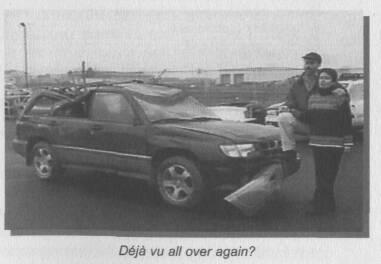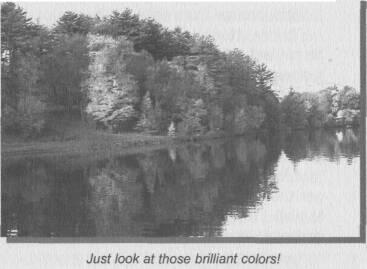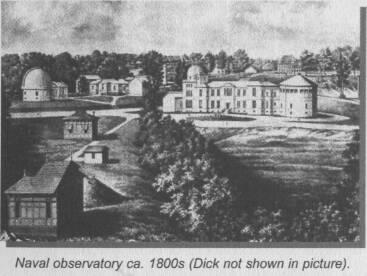If Chins Could Kill: Confessions of a B Movie Actor (60 page)
Read If Chins Could Kill: Confessions of a B Movie Actor Online
Authors: Bruce Campbell
Tags: #Autobiography, #United States, #General, #Biography & Autobiography, #Biography, #Entertainment & Performing Arts - General, #Entertainment & Performing Arts, #Actors, #Performing Arts, #Entertainment & Performing Arts - Actors & Actresses, #1958-, #History & Criticism, #Film & Video, #Bruce, #Motion picture actors and actr, #Film & Video - History & Criticism, #Campbell, #Motion picture actors and actresses - United States, #Film & Video - General, #Motion picture actors and actresses

To make sure we stayed on schedule, and it was very tight most of the time, I enlisted the help of Hertz's "never-lost" system. After a few misguided attempts to navigate from point "A" to "B," I renamed it "ever-lost." The robotic female voice that announces directions was testy at best, confused often, and incommunicative when I really needed her. In honor of an old girlfriend with the same characteristics, and because it seemed fitting, I dubbed her "Carla."
Once I programmed a route, if I made any changes, like searching for lunch, or a bathroom stop, Carla would reprimand me like a nun. "Please return to the highlighted route," she would admonish.
"Please guide me to a hardware store so I can buy a hammer and smash you to pieces," I'd reply.
Part of the problem arose from the fact that Carla relied on satellite connections to triangulate her location. Under certain conditions, she couldn't "find" all four positioning satellites, and when that happened, all bets were off.
"Exit on the right in approximately one mile," Carla droned.
"Oh really? Would that be the exit I passed 2 miles ago, Carla?"
At numerous points along the route, Ida and I would find ourselves in rural areas. Carla's little CD-sized brain could only hold so much information, and the small car icon, which symbolized our approximate location, spent plenty of time floating in a dark void on the screen.
When I'm on a deadline, I prefer short, straight routes, with little chance of getting lost or delayed. Ida, on the other hand, loves what I call "long-cuts." She'll go out of her way to avoid repetition, often steering us far from the main drag.
Driving from Oregon to Los Angeles, Ida became irritated by the hot, hazy 5 Freeway in central California and decided to find an alternate route. Rifling through a stack of maps, she eventually found what she was looking for -- a pass over the Sierra Mountains that would take us to U.S. 395 -- a far more primitive yet beautiful southern route to Los Angeles.
To get there, we had to cross the Sierra Mountains. When the Intercontinental railroad was constructed through there in the 1860s, it was a feat considered nearly impossible. Ida's longcut across Highway 120 seemed just as bad as we churned up a winding grade over the Tioga Pass, just shy of ten thousand feet in elevation.
Within two hours of taking the new route, the outside temperature had plummeted from ninety-nine degrees in the San Joaquin Valley to fifty-two. The heat problem was solved and the scenery was outrageous as we crossed the north side of Yosemite Valley.
Near the end of the bypass, the sun made a fast exit, and we found ourselves running short of three critical things: daylight, gasoline, and brake pads. Stopping our car was the biggest problem of the three, as Ida soon discovered on her descent. Snaking down a steep grade with a massive gorge on our right, minus guardrails, is the wrong time for brakes to go out, but that's just when they did.
"Bruce...! can't slow down," Ida said with an urgency you don't hear often, except in movies. "I think the brakes are shot."
Several years ago on Christmas Day, I lost control of our Subaru while driving down an icy slope, and flipped our car upside down in a ravine, so I was immediately familiar with the feeling of impending doom as it welled up inside.
Getting to a safe area on our left meant cutting across oncoming traffic, but without brakes, we had no control over
when
to do it. I suggested that Ida downshift and duck over at the first opportunity. With a sharp tug on the wheel at the right time, Ida managed to pull off and eventually stop with the help of the emergency brake. After a rest to cool down the breaks and change our undergarments, we were back on the road again.
In the funk that followed 9/11, I found myself driving across much of Florida, including Miami, Ft. Lauderdale (locally referred to as Ft. "Liquordale"), Tampa, and Atlantic Beach. I had never seen more flags on display in my life -- every other car had something red, white, and blue hanging from an antenna, or stuck to a window.
In downtown Ft. Lauderdale, tandem pickup trucks cruised side by side down the main drag with giant flags propped up Iwo Jima style in the rear beds, with cheering, liquor-toting students shouting pro-USA slogans. Given the nature of this spring break haven, I'm not so sure they were all that patriotic -- it seemed like just another excuse to party.
Tampa had a weird
Omega Man
feel by the time I got there on September 17. Only six days after the attacks, most traveling businessmen were still trying to get back home, let alone make sales calls.
As a result, I had the run of the Wyndham Harbour Island resort that night. The restaurant was wide open and the hotel lounge, usually two layers deep with Joe the lawyer and Moe the industrial sales rep, was empty.
As I traversed "Alligator Alley," the only highway to cross the Everglades, pro-America songs filled the airwaves, some not played since the late fifties. You know something big had happened to our country when they dust off John Wayne's spoken rendition of "America the Beautiful." The station was WJGO -- Groovy 102.9. I remembered it because they used my character Ash's "Groovy" line as a station I.D. I got a good chuckle out of it -- then called my lawyer.
WEATHER YOU LIKE IT OR NOT
At various points during the book tour, Ida and I began to feel like we worked for the postal service -- books had to get signed come rain or shine -- hell or high water. Weather-wise on this book tour, we encountered a little bit of everything.
During the course of several months, traveling across a very large country, you are bound to wind up in the right state and the right time and, conversely, the wrong state at the wrong time -- like Las Vegas, Nevada, in August, or Savannah, Georgia, any time of the year.
Boston decided to take a breather from its protracted drought when I passed through in the fall, and dumped about an inch and a half of rain in two hours. Cleveland said "hello" to my landing aircraft with a combination of snow and lightning. As the turbulence rocked our cabin like a bad disaster movie, all I could think to myself was,
only in the Midwest.
Flagstaff, Arizona, can't be trusted any time of the year. I'd passed through there once before on a cross-country drive, and had to buy emergency snow gear because of a freak blizzard. When we stopped in Flagstaff during the tour, Ida and I got caught in a wicked hailstorm, in August, mind you, and the wind was so furious that it blew horizontally.
Occasionally, after inflicting untold cruelty, the weather gods would smile, and I found myself in places like New England in the fall. Clichés abound about how vibrant the colors are and how quaint the towns are, and guess what? It's all true. For those of you who have never done it before -- get going!
Overall, I found a great irony in traveling by car during the heart of the summer -- it's also the best time for every state in the union to haul out the heavy equipment and dissect every road ever built. Passing through Buffalo in the late fall, where winter had already been threatening, a local explained the situation this way: "Buffalo only has two seasons -- winter and construction."
DIVERSIONS ALONG THE WAY
Every so often during the five-month tour, I'd get a free evening between cities, or a couple hours some morning, and each time I was confronted with the same question:
What should I do?
I've found that 50 percent of the time, the chances of finding something fun to do were just as good if I skipped the phone call to the concierge, skipped the yellow pages, skipped the Internet search, and just got out of the hotel. If I wanted to break the monotony of the road, I had to get off my lazy ass and make it happen. In every case, even if my search turned up nothing, it was always more fruitful than watching the
CNN Headline News
cycle through their report five consecutive times.
It's amazing how many adventures lie within a five-mile radius of wherever you are. My hotel in Baltimore connected to a light rail system that ran all the way to Camden Yards, the legendary ballpark. With a growling stomach, that sounded good enough for me -- I was sure to find a place to eat somewhere along the way.
As the train pulled up near the stadium, I saw the backside of a bank of lights -- and they were on. Exiting the car, I heard a huge roar from the crowd within, and my suspicions were confirmed.
Holy shit,
I thought,
there's a ball game tonight!
I hustled over to the ticket window.
"How much have I missed?" I asked the attendant.
"Not much," he said. "It's the bottom of the third."
"Works for me," I said, digging a credit card out of my wallet. "I'll take one of your finest seats."
With Bud and bratwurst in hand, I made my way to what was an excellent seat and basked in perfect baseball weather: a clear, warm night, with a slight breeze from right field.
To my utter joy, future hall-of-famer Cal Ripkin was at bat. 2001 was to be his last season, and home games usually sold more tickets because fans just wanted to see him play one last time. Now retired, Cal was a pillar of strength for the Baltimore Orioles for just about twenty years -- an eternity in professional sports. No sooner had I focused my attention on the action, when -- whack! -- Cal ripped one right up the center for a base hit.
Not bad for a book tour,
I thought.
I love to walk. When you're hustling from city to city, you can't always get that body-by-Jake workout in, but you can almost always find a place to walk. Traveling by foot is the best way to get the feel of a city or neighborhood: Does it smell? Is it loud? Are there even sidewalks?
In Washington, D.C., I took advantage of an early night to stroll along Embassy Row. It was fascinating to see the different styles, from the large British Embassy to the sleek Danish Embassy and even the ratty one representing Belize.
But as I walked farther away from the center of town, the embassies thinned out, and I found myself next to an imposing black metal fence. Layered banks of bright lights shined from within the grounds toward the street, thereby blinding any would-be intruders -- or passersby for that matter.




